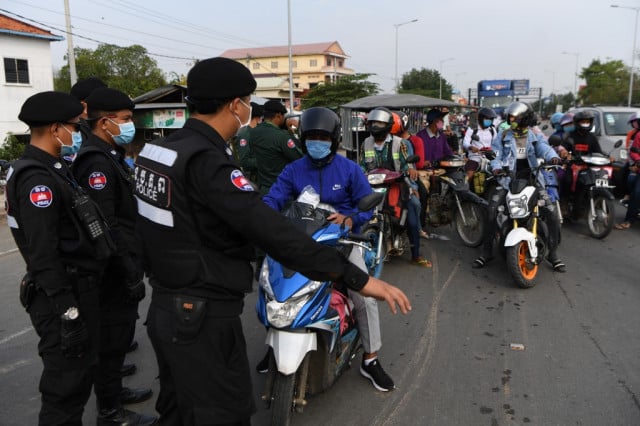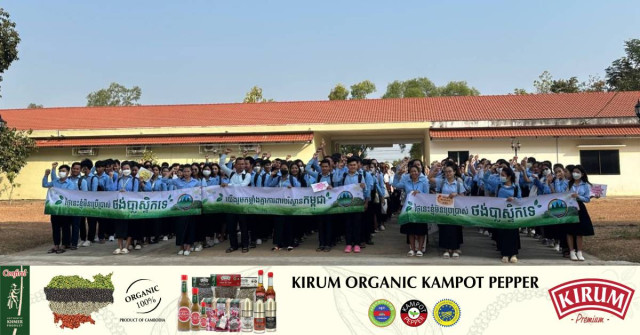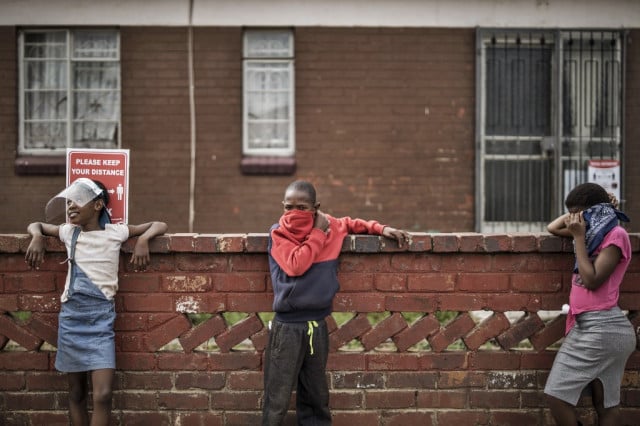Follow Government Instructions to Prevent COVID-19 Spreading

- Cambodianess
- April 15, 2020 5:00 AM
The Coronavirus Disease 2019 (COVID-19) has left us with some haunting images. News of a disabled child in China who died after being abandoned when his father was placed in quarantine remains a fresh wound in our collective memory. A child was left alone to die with nobody to look after him as the virus ravaged China. Cities have become uncomfortably quiet as governments everywhere implement lockdowns and restricting movement to prevent the spread of the virus.
The death toll globally has passed 120,000. In Cambodia, as the very first confirmed case of COVID-19 was officially announced, people were impatiently waiting to hear from the Ministry of Health in response to the infection – they wanted reassurance. Cooperation from the Cambodian people has been a crucial element in limiting the spread of the virus.
While the first official case of COVID-19 was reported earlier in the city of Wuhan, Hubei province, China back in January 2020, Cambodia’s first confirmed case of the virus was a Chinese national who was traveling from Wuhan city to Sihanoukville on Jan. 27. Months passed and on March 7 Cambodia detected a second case of COVID-19 in Siem Reap province. He was the first Cambodian national to contract the virus and is thought to have come into contact with a Japanese businessman who worked in Siem Reap, but had since returned to Japan where he tested positive for COVID-19.
Since then the COVID-19 outbreak was upgraded to a pandemic by the World Health Organization and Cambodia, as of April 15, has reported 122 cases of the virus, of which 96 patients have successfully recovered. Cambodia has gone to great lengths to downplay the possibility of local transmission, instead choosing to portray the virus as something imported by foreigners – of the 122 cases reported by the Ministry of Health, just 51 cases involved Cambodian nationals. The remaining 66 cases were foreign citizens comprised of nine nationalities.
As of April 15, COVID-19 has been officially identified in 210 countries and territories across the continents. The world is, once again, experiencing another unpleasant wave of racial discrimination, coupled with a severe economic impact as the pandemic has highlighted the bleak inequalities that exist at the foundation of our society. Each nation is experiencing the impact of COVID-19 at different levels and as such has handled it differently.
In Cambodia, a trinity of perspectives are being actively put into effect.
Preparation
The pandemic that has engulfed the world has taught us the importance of preparation. The Cambodian government was working on two fronts at the same time. The first front is keeping citizens from overreacting or creating chaos in their panic. The second front, a behind-the-scenes role, is studying the virus, preparing for possible scenarios and formulating strategies for the nation in the face of crisis.
Although the number of confirmed cases remain relatively low, the official announcements of measures to protect both the economy and society keep coming. This is a clear indication that the governing body of Cambodia does not underestimate the seriousness of the situation which evidently poses a threat to all nations. In the early stages, Prime Minister Hun Sen announced a fiscal package ranging $800 million to $2 billion depending on the severity of the pandemic to implement containment measures.
In the meantime, the government has converted schools and hotels into makeshift quarantine centers for the treatment of infected patients, as well announcing the temporary closure of many public places. The next move was to establish a group of 400 volunteer doctors and medical personnel, preparing surgical masks, alcohol-based sanitizer and temporarily halting the exportation of rice product. Hun Sen has also set about drafting controversial new laws pertaining to the declaration of a state of emergency.
So far, the last stage is the cancelation of the 2020 Khmer New Year celebration and the resumption of all working activities within public and private institutions. The ultimate aim is to restrict the movement of the Cambodian people. Movement and gatherings provide ample opportunity for the virus to spread.
Unity between Cambodians
In response to such horrors, Cambodian citizens never show ignorance to one another’s struggle. Campaigns of all sizes were organized by the government, the private sector and community-led initiatives to provide financial support for victims and healthcare workers. There are plenty of past examples of Cambodian unity in the face of tragedy, such as the campaign to support military personnel along the border, donations given to the Kantha Bopha foundation, assisting the victims who were caught inside building collapses and now, campaigns to support those affected by the COVID-19 pandemic. Families with sufficient income and wealth were donating rice and food to the underprivileged families. Others were donating hand sanitizer to tuk-tuk drivers and garbage collectors.
Government officials, senators, armed forces personnel, police officers and authorities of all level are coming together to contribute some of their salaries to the National Committee that coordinates efforts against COVID-19 upon the Prime Minister’s request. This was followed by other large scale donation campaigns from various private sectors.
The media continues to disseminate up-to-date information about the virus, its impact and the efforts to contain it – despite the difficulty of obtaining certain facts about sensitive issues that is inherent to the context of Cambodia.
All parties have contributed their best of humanitarian efforts. Members of the largest youth movement, the Union of Youth Federation of Cambodia (UYFC) have been enthusiastically raising informative posters, handing out leaflets, sanitizer and masks directly to villagers. The head of the youth movement, Hun Many, whose position is also a member of parliament, regularly composes messages on social media in a bid to strengthen the unity and solidarity among citizens in getting through this difficult time period.
Make no mistake, the virus is ferocious – it is not simply the common flu. It has mercilessly taken many innocent lives from countries rich and poor and has completely upended the way we live around the world. Top leaders, government officials and many other social workers of these technologically advanced nations were being victimized by this microscopic object. Some governments have expressed remorse for not taking the matter seriously enough.
Many governments have implemented nationwide or partial lockdowns, as well declaring a state of emergency.
In the case of Cambodia, the government appears prepared to function according to stages of precaution and prevention. The only crucial interlocking part is the active cooperation from the citizens.
Humanitarianism and Racial Tolerance
As Cambodia has sought to portray its confirmed cases of COVID-19 as having been brought into the country by foreigners, leading to acts of racial discrimination. This has largely been directed towards the Cham people, an ethnic minority in Cambodia.
In February 2020, a cruise ship by the name of Westerdam, carrying 2,200 passengers was rejected to dock by six different countries and autonomous island regions. The rejections were made under the speculation that those onboard might be infected with COVID-19 as other cruise ships have demonstrated.
However, on Feb. 12, Cambodia announced the decision to welcome the Westerdam, which subsequently docked in Sihanoukville. Hun Sen proclaimed he was acting out of humanitarian compassion at a time when others ignored the plight of those aboard the ship.
Following great effort, all 2,200 aboard the Westerdam were repatriated to their respective home countries and Cambodia basked in an outpouring of international gratitude. Hun Sen has since declared that Cambodia is “a small country with a big heart.”
Reflecting on this, it is a precious time for the citizens of Cambodia to practice good hygiene and exercise precaution in the name of their family and their community. Obey the guidelines of the government to help fight the spread of COVID-19.















